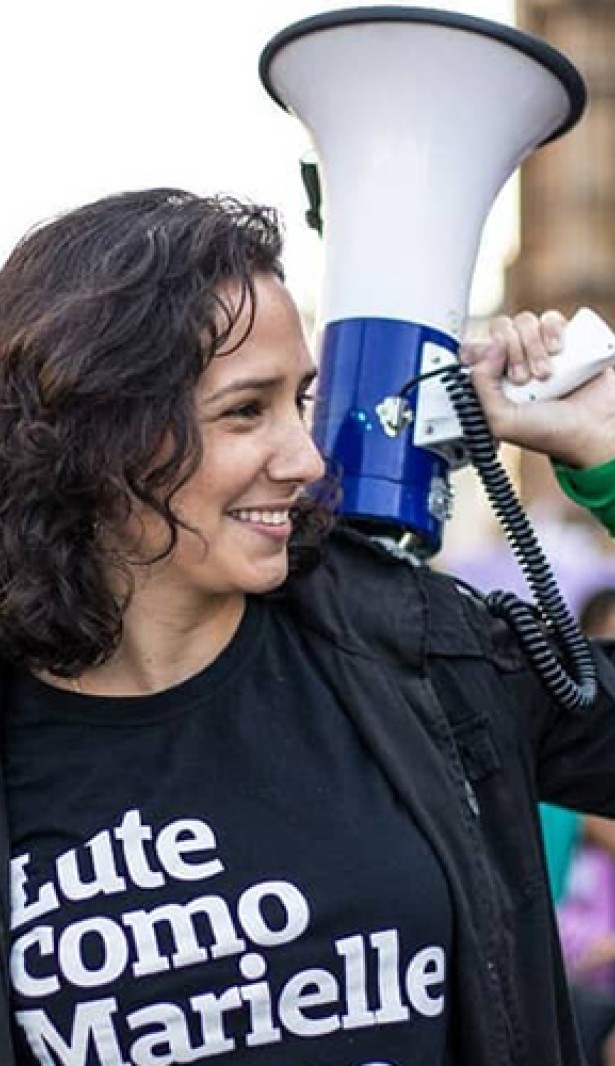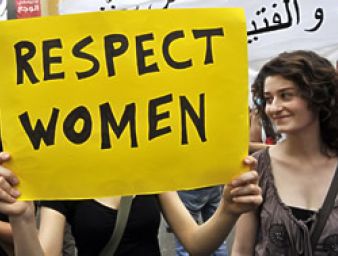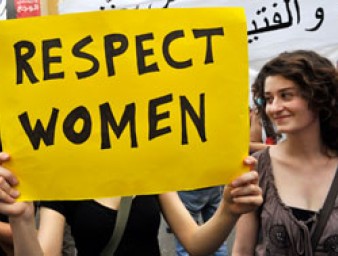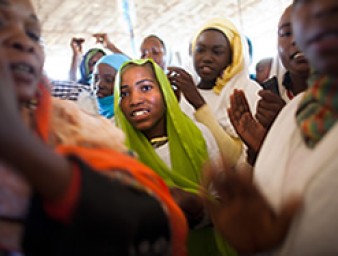Monica Benicio, widow of murdered Rio city councillor, Marielle Franco, vows to keep fighting
14 March 2019
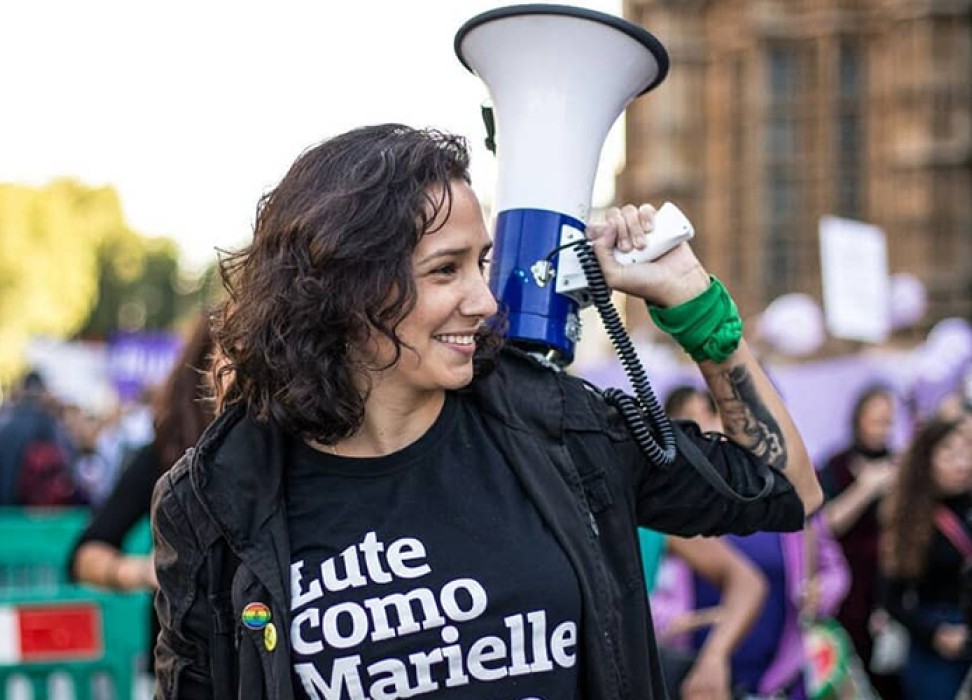
A year ago, Monica Benicio, lost the love of her life. On the night of 14 March 2018 her partner, Rio de Janeiro Council Member Marielle Franco, was shot dead with four bullets to the head while she was returning home from a public event called “Young Black Women Moving Structures”. The murder also claimed the life of her driver, Anderson Gomes.
Franco was an outspoken critic of police brutality and an advocate for the rights of women, LGBTI persons and young people from the urban peripheries of her city.
For the past few months, we have seen Monica Benicio wear the same campaign t-shirt in honour of her deceased partner. On it, “Lute como Marielle Franco,” meaning “Fight like Marielle Franco,” is inscribed as a new rallying cry for Franco’s thousands of supporters.
“I see a future of hope. That hope comes with a lot of resistance, it will not be built without a fight, but I hope that, contrary to what we have had in all moments of our history, it will come with less blood,” Benicio says. “This is the struggle of the feminist movement. It is the struggle for a fairer and more egalitarian society,” Benicio says.
At the end of February, during the latest session of the UN Human Rights Council, Benicio was in Geneva to talk about the situation of women human rights defenders in Brazil, “and to seek international help so that the world knows what is happening in Brazil.”
These defenders, like the departed Marielle Franco, have been the victims of public shaming, online harassment, death threats and even killings according to a new UN expert report. In 2017, 65 human rights defenders from Brazil were reportedly killed, according to the NGO Front Line Defenders. Benicio herself has received serious threats to her own life that have forced her to leave the home she shared with her partner.
Being a human rights defender
An architect by trade and a human rights defender, Benicio believes it was fundamental for the international community to understand that her partner’s struggle was for human rights and in opposition to racism, gender discrimination and phobia towards LGBT people.
She says that the participation of marginalized groups is seminal to transform society. The minority in political power but the majority in number, Benicio adds, would no longer accept a chaotic and violent society but deconstruct it with resistance.
“We have spoken out, more and more. Even looking at our reaction to Marielle's execution - although we, especially the black women, could all have remained stuck and taken a step back from the struggle – we had the completely opposite reaction to that attempt to silence what Marielle represented,” Benicio says.
Black women in Brazil reacted to Franco’s murder by occupying more democratic spaces.
“When I look at a fight by a Quilombola woman, for example, that fight inspires me. The voices of these minorities, if viewed by the collective, can also be understood as inspirational for the struggle,” she says.
“It is always minorities that seek to speak up, not only for themselves, but also for a collective construction. So I should look at these struggles and understand that if they inspire me it means that I too want change,” Benicio adds.
Beyond grief, the struggle
Marielle Franco fought her way out of the favelas to become a popular Council Member of the City of Rio de Janeiro. She leaves behind a family and friends, as well as other survivors of violence to cope with losing a young woman in her prime.
“It's hard to keep going after so much violence. But I think that, in fact, what gives a new meaning to even life itself, is the essence of the struggle… to understand that you must participate in some way, in a social construct with solidarity, so that no one feels the same pain as the one you felt,” Benicio says.
“This is a personal project of mine. Not wanting someone else to endure a similar ordeal. So when I think that my fight can prevent this from happening, it helps me to go on.”
After Franco’s killing, global protests denounced her murder. As we have reached the first anniversary of her death, local protests and homages continue. So does the investigation into Franco’s murder: On 12 March 2019, two former police officers suspected of participating in the killing were arrested.
“Transforming society into what she struggled for is what she believed in. So, in a sense, for me, it's also a way to continue with her. And to tell people who have gone through similar violence and pain that, yes, we have reason to continue. Because otherwise we will say that the lives of our people who were taken away were in vain and this for me is inadmissible,” Benicio says.
“To give new meaning to history itself in a struggle movement is also an act of solidarity and of social transformation; it is also an act of struggle for human rights standards. This is Marielle's legacy. That is it.”
14 March 2019
